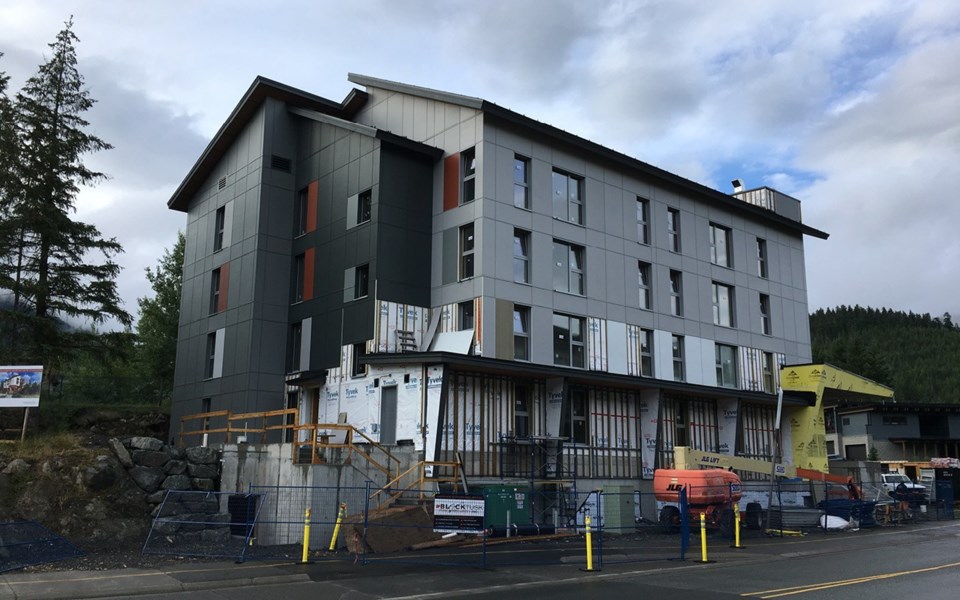The Resort Municipality of Whistler's (RMOW) payroll costs rose slightly last year, while payments to suppliers held steady, according to the annual Statements of Financial Information (SOFI) report.
Payroll costs totaled $32,712,568 in 2018, up from $30.7 million the year before, while the RMOW spent $69,940,003 on suppliers (down slightly from the $70.7 million spent in 2017).
"There's some variations in (the payroll costs) you see from year to year, for different staff members, and that might be related to unused vacation, sick time, it could also have to do with a staff (member) moving to a higher payroll band throughout the year, or if it went down it could be someone was away for awhile," said RMOW chief administrative officer Mike Furey, adding that contracts for both Whistler's firefighters (2.5 per cent increases annually from 2012 to 2019) and RMOW staff (1.5-per-cent increases in 2016 and 2017 and 2-per-cent increases in 2018 and 2019) are in their final year.
"As those collective agreements expire, we'll be at some collective bargaining moving from 2020 onward," Furey said.
The RMOW is informed in its bargaining, to some degree, by what's happening in the Lower Mainland, he added.
"They have 26 municipalities down there—and the City of Vancouver has 10,000 staff, so we're not totally influenced by them, but we certainly look to see what happens," he said.
"I'm confident when we get into those collective bargaining negotiations we'll reach an understanding that works for all parties, including the community."
THE TOP EARNERS—$75K AND UP
As in past years, the 2018 SOFI report (which can be found in the June 25 council package starting on page 132: www.whistler.ca/sites/default/files/2019/Jun/meeting-package/package/26079/2019-06-25_regular_package.pdf ) includes an alphabetical list of RMOW staffers earning more than $75,000 a year.
The 2018 edition shows 113 employees above the $75K threshold, up from 105 in 2017.
The wages also include things like employee contributions to the Canada Pension Plan, Employment Insurance and health benefits.
Furey was once again the top earner in 2018, taking home $246,043 (down from $250,292 in 2017), followed by others in senior management: general manager of resort experience Jan Jansen ($180,795, up slightly from $180,031 in 2017); director of planning Mike Kirkegaard ($162,810, up from $149,890 in 2017); and general manager of infrastructure James Hallisey ($161,583, up from $159,299 in 2016).
Whistler's firefighters once again made up a big portion of the resort's top earners, with 21 names making the 2018 SOFI list (down from 23 in 2017).
Of those 21 names, only four came in below the $100K mark.
Whistler's firefighters are on a pay scale based on length of service, and also benefit from overtime pay (firefighters called in on short notice earn time and a half).
THE SUPPLIERS
Payments to suppliers fell slightly over 2017, from $70.7 million to $69,940,003.
The biggest payments were to BC Transit ($6.6 million), Tourism Whistler ($3.6 million), the receiver general ($3.4 million for policing costs) and GFL Environmental ($3.2 million).
Other big spends last year included two Whistler Housing Authority builds ($3.5 million to Durfeld Log Construction for the project at 1020 Legacy Way in Cheakamus and $1.9 million to Kindred Construction for 8350 Bear Paw Trail in Rainbow), $2 million to Alpine Paving, $1.1 million to B. Cusano Contracting for construction of the Gateway Loop shelter, $1 million to Pacific Sign Group for custom wayfinding signs and $1 million to Carver Construction for the Emerald pump restoration project.
There was also $5.4 million spent on suppliers under $25,000 (which are not listed individually in the SOFI report).
"Some of the more important financial work we're doing is we're continuing to work on our financial reserve policy, which is very critical in making sure we have adequate finances on into the future," Furey said.
The balance of all RMOW reserves was $86 million in 2018, with the general capital fund holding the most at $18.6 million.
On the other end of the scale, the employee housing reserves had just $215,433 in the bank—but with the provincial government now collecting Municipal and Regional District Tax on properties listed with online accommodation sites like Airbnb (and those funds being remitted to the municipality quarterly, potentially to be used for employee housing), the reserves are set to grow.
With Tourism Whistler agreeing to contribute its portion of that revenue to employee housing for one year, the RMOW is forecasting it will have $1.3 million to put towards housing in 2019, Furey said.




